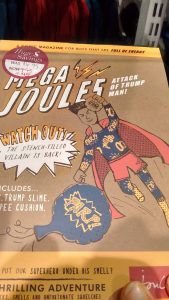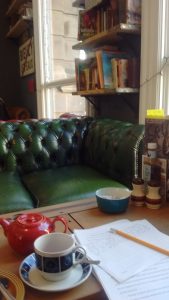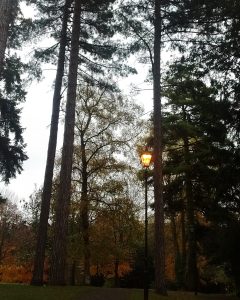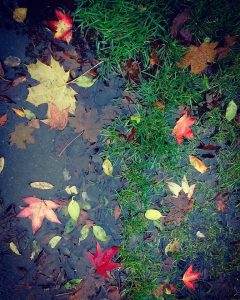The general consensus seems to be that 2016 was a particularly rubbish year. It’s a bit facile, though, to assume recent international disasters sprouted randomly in response to the page-turn of a calendar.

As writers, we tend to reject such premises, and to root around for causes. With minimal detective work we can see that Brexit and the Trump election were a long time coming, thanks to economic disparity, normalising of white supremacist ‘alt-right’ rhetoric, mainstream media obsequiousness, the hubris of established party politicians…I could go on.
The cancer that killed various celebrities was proliferating in their cells before. The citizens of Aleppo have been suffering for years; politically oppressed perhaps for decades. Extrajudicial killings of black people and the militarisation of police was already going on, racial bias and mistrust of law enforcement existing since before the United States signed the Declaration of Independence.
I bear no ill will towards 2016. I’ve watched it be rather kinder than its predecessors to those dearest to me. But I feel trepidation at saying I’ve had a decent year, because who knows what strife or loss germinates as I write this. The same is true for all of us. I only hope the hard work I’ve done this year, particularly in my writing, will later blossom into more success. (Although unfortunately, hard work in actual paying jobs seems to guarantee me very little security, particularly this year.)

I’m always fascinated by stories which use the tiniest misstep to accelerate into a wicked tango of tragedy. Stories such as Atonement, Nicholas and Alexandra, and the novel I finished reading the other day, Sebastian Barry’s The Secret Scripture. These books give me a sense of awe as I contemplate their what-ifs. In my own work, I’ve laid out a similarly inevitable, escalating path in my novel Artefacts, as characters’ niggling insecurities feed off each other until they reach monstrous, crippling stature.
This year I wrote a new novel, The Wrong Ten Seconds, in which a man’s reckless deed becomes a viral video. Disaster ensues—not chaos, because it’s a particularly sequenced chain of events as other characters are drawn in. I’ll be editing my quite rough draft of The Wrong Ten Seconds in spring 2017, aiming to tighten up that chain.
Next year’s other plans—not goals, because I’m actually going to do these things—have their roots in projects from this year. I’ll finish my current novel, Society of the Spurned. I wrote the first half during November for NaNoWriMo. After editing The Wrong Ten Seconds, I’ll research and query agents.

Then I’m going to expand my one-act play, A Night at the Armoured Cars Sub-Division, to a full-length one. That’s the bit I’m most excited about. Starting to explore playwriting last January and February, developing an unconventional but exciting premise, and then having it performed in September in its current short form, were highlights for me this last year. Reading at the November Stroud Short Stories event was another exciting moment.

There have been plenty of rejections. I will need to work relentlessly, to read and improve and network. I’m fortunate to have support from my extremely discerning brother—my number one reader—plus a warm and talented local writers group, loads of inspiring connections on Twitter, and a husband who knows how to set up websites.
And of course, I have my beloved characters to motivate me. For example, Charlie’s expression of my general philosophy, in The Wrong Ten Seconds: ‘Suffering adds a whole new depth to beauty.’
And the words of Helen’s brother in Artefacts: ‘Sure, we all make our own beds. But we don’t have to lie there forever! If we don’t like the bed we’ve made, we can jump on it. We can throw the covers off and tear up the sheets!’
The possibilities are endless. I just have to keep my eyes and ears open, to gather bits of string until I find myself entangled in the next project. What threads will you be pursuing in the new year?



